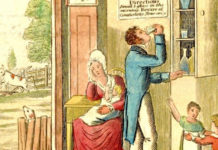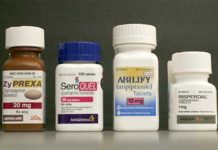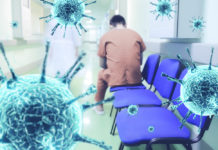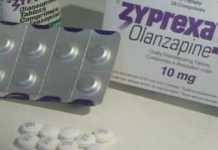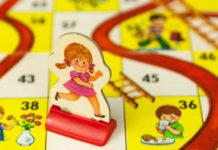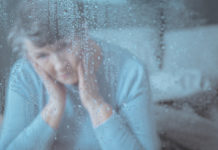How to Know What We Don’t Know: An Interview with Psychologist and Novelist Jussi...
MIA's Gavin Crowell-Williamson interviews the neuropsychologist and novelist Jussi Valtonen about how novels can lead us to see the limits of our understanding.
Drs. Pies and Ruffalo Still Rattling Their Wooden Swords
Pies and Ruffalo argue that psychiatric diagnoses are "diseases" because the word "disease" can't be defined, and suggest that circular logic is scientifically valid.
How 1 Panic Attack Led to 15 Years of Psychiatric Drugs
My brain zaps—symptoms of benzo withdrawal—were like having a mini seizure on a daily basis. But my doctor kept telling me that my “underlying” anxiety was causing all my distress.
An American History of Addiction: Ardent Spirits
Our fears about drugs and drug addiction have allowed our society to accept court mandated treatment and the continuing militarization of police.
Service-User Knowledge Helps Researchers Develop Psychiatric Drug Tapering Approaches
New strategies for tapering psychiatric drugs achieved by acknowledging withdrawal symptoms and valuing service-users’ first-hand knowledge.
Professional Mental Health Leaders: Experts in Humanity or in Marketing?
A lot of people, perhaps especially Americans, like a quick fix. Unfortunately, for those of us who get the “help” of the mental health system, the results can be disastrous.
Embrace the Messiness! An Interview with Pediatrician Claudia Gold
An interview with Claudia Gold, M.D., pediatrician, infant-parent mental health specialist, author, teacher, and speaker based in western Massachusetts. We discuss the importance of human interaction in child development.
Whose Finger is Taking the Pulse of America’s Shock Treatment Controversy?
My doctors presumed I had agitated catatonia and ran 450 volts of electricity through my head 116 times to “reboot” my brain. They called it electroconvulsive therapy (ECT). I call it Electroconvulsive Trauma.
Mental Health and Emotion in the Digital Age: An Interview with Ian Tucker
MIA's Tim Beck interviews psychologist Ian Tucker about the relationships between digital technologies, emotion, and mental health.
For People “At Risk for Psychosis,” Antipsychotics Associated with Worse Outcomes
Researchers studied whether antipsychotics could prevent transition to full psychosis and found that the drugs worsened outcomes.
Reporting the COVID Crisis at Psychiatric Hospitals: A Missed Opportunity
In its coverage of the impact of COVID on psychiatric hospitals, the media missed opportunities to challenge stereotypes and interrogate problems with current carceral approaches to mental health treatment.
Stop Saying This, Part Two: “Reframing” and More
Myths around reframing, having to love yourself before someone else can love you, and being triggered are all addressed in this blog.
World Benzodiazepine Awareness Day 2020
This week on MIA Radio, we present the second part of our podcast to join in the events for World Benzodiazepine Awareness Day 2020...
Is COVID-19 Making Everybody Crazy?
The response to the pandemic promises a vast expansion of the market for therapists, but such claims carry great potential for harm, adding to the burdens of people with upsetting but understandable, deeply human feelings.
Racism and Radical Psychiatry
A radical caucus within the American Psychiatric Association tried to combat systemic racism in the 1960s. So why is the APA still behind the times?
Child Abuse and Psychosis: My Healing Journey
Hospitalized for "grandiose delusions," I began to wonder: Was my dis-orientation really just a sickness? Or in "treating" it, was I missing a powerful re-orientation toward healing old wounds?
Randomized Controlled Trial Confirms That Antipsychotics Damage the Brain
A new study published in JAMA Psychiatry connects antipsychotics with damage to the brain in multiple areas.
Angela Peacock – Medicating Normal
An interview with Angela Peacock who talks of her experiences of being prescribed benzodiazepines, her journey off multiple medications, her continuing work in veterans advocacy and her thoughts about the film Medicating Normal which will be screened on World Benzodiazepine Awareness Day, July 11.
Bridging Critical and Conceptual Psychiatry: An Interview with Awais Aftab
MIA’s Justin Karter interviews psychiatrist Awais Aftab about how “conceptual competence” uses philosophy to transform psychiatry.
Snakes and Ladders: How Psychiatry Took Away My Choices
The psychiatric system takes away all choices and freedom and calls the resulting state "mental illness." Psychiatry justifies alienation rather than repairing it.
Voicehearing, Reinaldo, and My Work as The Writer
The Writer has outlined a significant work through my hands, dictated by the voice of someone who lived at some point a long time ago, such as London in 1682 A.D.
The Year I Lost Everything, Psychiatry Offered Nothing
After a failed suicide attempt following my son's death, New York State incarcerated me in a mental institution for 21 days. The environment was degrading, stultifying, and downright depressing.
Youth Antidepressant Use Associated With Increased Suicide and Self-Harm
National data on rates of youth antidepressant prescription, suicide, and self-harm in Australia sparks public health debate about drug safety.
Suicide & Candy Corn: The Utility and Challenges of Risk Assessments
Researchers admit their suicide risk assessments work only about as well as random guessing, and they can lead to harm. We can instead focus on finding new ways to form connections that might help tether someone to this world.
Kerry O’Malley: A Personal Struggle Against Forced Medication
Neglect for personal autonomy is a pervasive attitude in the mental health system. No human being should be stripped of their dignity and autonomy, much less a vulnerable 74-year-old woman.




